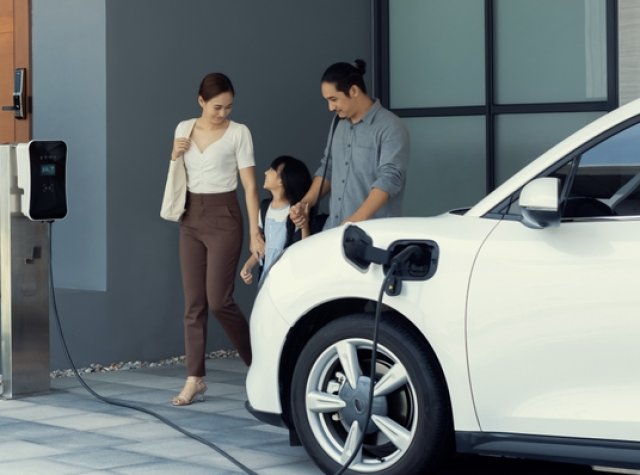
There are only two weeks to go until the election round that will redefine the European Parliament. Among the numerous topics being examined by the various national and international political factions during the election campaign, the ecological transition is one of them. As is well known, targets have been set for cutting CO2 emissions, with the EU Parliament setting 2050 as the target year to achieve zero emissions. This is an ambitious project that some member states, including Italy, find hard to conceive as feasible for various reasons that concern the reference market as well as the logistical structuring of a plan that would allow the achievement of the goal without collateral damage to the population (in economic and employment terms, but not only).
Fratelli d’Italia, the party led by Prime Minister Giorgia Meloni, explains in its programme inherent to the European elections in June that it is important to look at the environmental issue carefully and wisely without letting the ‘eco-follies’ take over. And on the automotive sector, for example, it proposes the cancellation of the ban ‘on the production of endothermic engine cars from 2035’ and to relaunch the sector based on the ‘principle of technological neutrality, investing in all alternative fuels and not only in the electric one, and developing the biofuel sector by protecting companies’. FdI also intends to ‘support the decarbonisation of different ways of transport and invest in sustainable urban mobility’.
To date, in Italy, steps in the direction of less polluting mobility are being taken through measures such as the Ecobonus, which is now official with the publication of the DPCM in the Official Gazette (25 May 2024).
Ecobonus, Urso: ‘A plan also for social sustainability’
The Ecobonus, as explained by the Ministry of Enterprise and Made in Italy – promoter of the measure – has the task of reshaping the incentives for citizens to purchase cars with low polluting emissions.
The department headed by Adolfo Urso summarises the content starting with the resources made available: 950 million euro. The figure is to be broken down as follows: 793 million for cars; 35 million for mopeds, motorbikes and quadricycles; 53 million for light commercial vehicles; 20 million for used cars; and finally, 50 million for an experimental long-term rental programme.
In addition to the purchase of vehicles, there is also the purchase of recharging infrastructure, such as electric car charging stations. This is also part of the programme drawn up by the ministry to relaunch the industry.
‘This new plan of incentives for the automotive sector,’ Urso explained, ‘rests on three pillars: the modernisation of the Italian car fleet, one of the oldest in Europe; support for the demand of people on lower incomes; and the relaunch of vehicle production in Italy. This approach is based on the conviction that a profound change of course from previous years is necessary’. At the same time, he also said that the measure aims at ecological sustainability, but also at social sustainability, considering that the plan pays special attention to families with lower incomes.
What does the measure consist of?
Among the many new features included in the 2024 measure (which has already been activated in previous years) there are significant subsidies for the purchase of cars with less polluting fuels (electric, plug-in hybrids and heat-engine cars with a CO2 emission level up to 135 g/km).
It is clarified in the document that the cars considered, looking at the price list (excluding VAT), must not cost more than 35 thousand euro for the 0-20 g/km band (electric) and 61-135 g/km (thermal), and 45 thousand euro for the 21-60 g/km band (plug-in hybrids). It should also be added that the maximum contribution attainable is 13,750 euros provided the EFSI of the buyer is less than 30 thousand euros. Those who instead have an EFSI higher than 30 thousand euro can obtain an incentive of a maximum of 9 thousand euro.
The primary purpose of the measure is to get motorists to proceed with the scrapping of what are considered the most polluting vehicles (i.e. Euro 0, 1, 2 and 3 – i.e. 25% of the vehicles in circulation in Italy). So, ‘a contribution of up to 2,000 euro was hypothesised for the purchase of used Euro 6 class vehicles (with emissions up to 160 g/km CO2,) against the scrapping of cars up to Euro 4.’
The process of modernisation and advancement on the subject of ecological mobility does not travel at the same speed in all countries, also considering inflation as well as the loss of purchasing power by citizens. However, the Meloni-led government is committing resources to accelerate a transition suited to the country’s needs; the measure in question, as we have seen, is based precisely on this principle of reflexive and prudent advancement.



 Subscribe
Subscribe